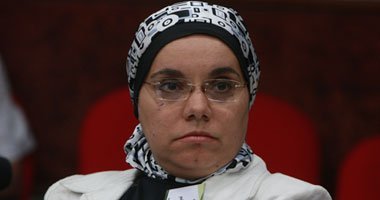CAIRO: The Tunisian revolution challenged stereotypes of the stagnant political scene associated with the Arab world and can now set a model for democratic transformation for the region, a roundtable discussion concluded Sunday.
Speaking at the discussion held at the Arab Alternatives Forum for Political Studies, experts hailed the role of the Tunisian Workers’ Union during the revolution; but however said that different social and political conditions in Egypt don’t allow for a similar revolt.
"In all cases, Tunisia won’t witness a setback and despite challenges, it can set a model for democratic transformation either through a complete democracy or an enhanced one," said Amr El-Choubaki, political expert at Al-Ahram Center for Political and Strategic studies.
El-Choubaki suggested two possible scenarios in Tunisia; either eradicate the overthrown regime’s Constitutional Democratic Rally from the Tunisian political akin to what happened with Al Ba’th Party in Iraq or gradually hinder the party’s ability to participate in the political life – which he said is "more likely."
"The revolt in Tunisia was initiated by the lower class for basic demands and then was transferred to the better educated and cultured middle class with its political affiliations which began to voice political demands," said Mohamed Al-Agaty, executive director of the Arab Alternatives Forum.
"Political parties operating from outside Tunisia and banned parties inside showed an ability to have an effect, not to lead public protests but respond to the public’s demands and build on it," he added.
Tunisian Mohamed Bouazizi set himself on fire last month, triggering a series of protests throughout Tunisia that eventually led President Zine El Abidine Ben Ali to flee the country.
"For the first time we see a workers’ syndicate able to continue pushing for its demands and further achieve political demands as well," said Kamal Abbas, head of the Center for Trade Union and Workers’ Services (CTUWS).
"The Tunisian’s regime’s firm grip on the society made the Tunisian Workers’ Union embedded in all political streams, the only outlet for activism in the country," he added.
According to Abbas, the nature and history of the Egyptian Workers’ Union don’t allow it to perform a similar role as it was established with a presidential decree in the 1950s and all its board members are part of the Ruling National Democratic Party (NDP), "appointed by security" rather than through fair elections.
"In Tunisia, the Workers’ Union, highly influenced by the French General Confederation of Labor (CGT), went through numerous struggles and clashed in several occasions with the political regime and maintained its syndicate traditions throughout their history," Abbas said.
Speakers expressed concerns that the Islamic stream would capitalize on the revolution’s gains as some already claim merit for the revolution, as well as the western reaction to the loss of one of its allies in the region.
"If Tunisia could integrate the Islamic political stream represented in Al Nahda Party into the political scene through democracy, they will set an example for the region," El-Choubaki said.
According to him, the absence of Salafi groups, the Muslim Brotherhood and a church played a role in allowing the revolution to take place as opposed to the situation Egypt.
"These institutions and groups lead to a general state of unawareness and failure to set the right priorities with the Egyptian society, in addition to the better educational system in Tunisia," El-Choubaki said.
"We need to learn the right time to transform social protests – which Egypt has been witnessing a lot of – into political demands in order to achieve results and not to lead to the repulsion of the masses to take part," Al-Agaty said.
They said that better freedom of expression in the media and in protests prevents such a revolt from taking place in Egypt.
"The Egyptian regime adopts a different strategy through allowing certain space for opposition voices in return of having a firm grip in other domains; if the opposition can’t take advantage of this available space, they will never convince ordinary citizens of their worth," Al-Agaty said.
According to El-Choubaki, in Egypt, beneficiaries of the current regime are a lot making the emulation of a Tunisian style revolt difficult, and change from inside the ruling party impossible without public pressure.
"The weak performance of various state institutions will allow various forms of chaos and collapse to take place and change will take a different form than Tunisia," El-Choubaki said.


